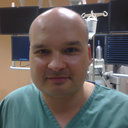Aspirin 'resistance': impact on no-reflow, platelet and inflammatory biomarkers in diabetics after ST-segment elevation myocardial infarction.
Keywords
Abstract
BACKGROUND
The no-reflow (NR) phenomenon exists despite percutaneous coronary intervention (PCI), and is especially prevalent in diabetics. The causes(s) of NR are not fully elucidated, but may be associated with impaired residual platelet and inflammatory reactivity during dual-antiplatelet therapy.
OBJECTIVE
To assess the relationship between dual-antiplatelet therapy, NR and conventional biomarkers suggestive of platelet and inflammatory response in diabetics following ST-segment elevation myocardial infarction (STEMI) treated with PCI.
METHODS
Sixty diabetics with (n = 27) and without NR (n = 33) were prospectively enrolled. All patients were treated with clopidogrel and aspirin. Platelet and inflammatory biomarkers were assessed serially in the peripheral blood and right atrium before and after PCI and then at 24 h, 7 days and 30 days.
RESULTS
Arachidonic acid (AA)-induced platelet aggregation and the serum thromboxane B2 level before and after PCI (in the peripheral and right atrium blood) were significantly higher in the NR patients than in those with no NR. AA-induced aggregation >100 (AUC*min) before PCI predicted NR in diabetic patients with 96.2% sensitivity and 38.5% specificity (AUC 0.66; 95% CI 0.52-0.71; p = 0.029). There were no other correlations between NR and platelet reactivity (collagen, adenosine diphosphate, thrombin receptor agonist peptide-induced aggregation, vasodilator-stimulated phosphoprotein platelet reactivity index, soluble P-selectin, soluble CD40 ligand, platelet-derived growth factor AB and the level of platelet-monocyte aggregates) or between NR and inflammatory indices (i.e. high-sensitivity C-reactive protein, interleukin 6 and interleukin 10).
CONCLUSIONS
An inadequate response to aspirin, but not to clopidogrel, may be associated with the occurrence of the NR phenomenon in diabetics with STEMI who have been treated with primary PCI.



